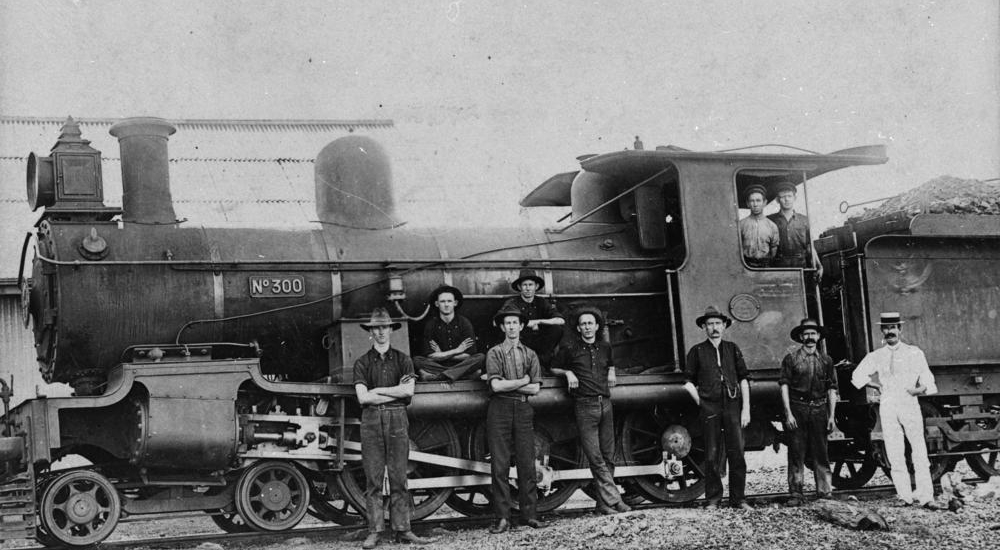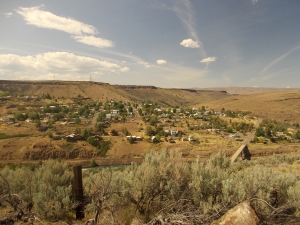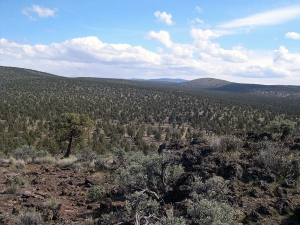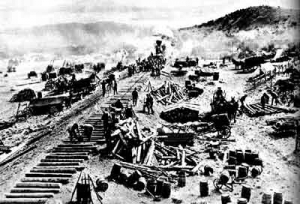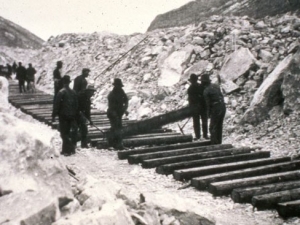Maupin is a city on the Deschutes River that has transformed itself from a tiny railroad whistle stop to a whitewater rafting and fishing destination in Oregon. With its bird eye view perched high above the banks of the Deschutes, Maupin was witness to America’s last great railroad war, survived a fire in the 1920s that burnt most of the town to the ground, and weathered several major flood events that swept through the canyon.
Originally named Hunt’s Ferry after the owner of a nearby ferry that gave safe passage to many folks traversing the rugged river canyon was later renamed to Maupin Ferry by the town’s founder William H. Staats, and finally shortened to Maupin in 1909. Today, Maupin is home to about to about 400 or so full time residents. During the peak rafting and fishing seasons that number grows temporarily as people migrate here to spend the spring, summer, and fall working for one of the local whitewater rafting or fishing outfitters. Maupin prides itself on its pioneering spirit and small town charm with small mom and pop’s businesses that cater to not just locals, but to the thousands of people that pass through each season on their way to splashing through rapids on the river, or hooking a prized steelhead trout.
In an 1854-1855 survey of Pacific Coast railway routes, Henry Larcom Abbot described Central Oregon as place “separated from the rest of the world by almost impassible barriers.” According to Larcom, “nature seems to have guaranteed it forever to the wandering savage and lonely seeker after the wild and sublime.” But, little more than 50 years later, this rugged western outpost was on the front line of America’s last great railroad war. In the dawn of a new century, two competing railroad companies, the Oregon Trunk and Deschutes Railroad, began construction of two separate lines at the confluence of the Deschutes and Columbia rivers. These railways would parallel each other up river through the inhospitable Deschutes River canyon with the goal to connect large pine mills to the south near Bend, Oregon to the rest of the country. In 1909 the Oregon Trunk Railroad Company was bought by James J. Hill who immediately put his best engineer on the project to complete what was once thought impossible. By mid summer, both railroad companies were blasting their way through the steep volcanic basalt rock canyon that encased the river on either side and ultimately into a head on collision that would be infamously recorded as the last great railroad war in America.
The back breaking work was the burden of many immigrant workers from all over the world including Chinese, Italians, Dutch, and the Irish to name just a few. And in the worker camps tensions ran high with work crews a literal stone’s throw away from their rivals. Stories of sabotage, fist fights, and gun fire across the river were common among the groups, not to mention the racial divide between completely different cultures. But, after the death of E. H. Harriman, who owned the Deschutes Railroad company, his successor along with Oregon Trunk’s James J. Hill decided to quit the squabbling and work together to complete the railway and share already completed stretches of tracks.
The blood, sweat, and tears that were shed in the construction of these railroads are not forgotten today by the folks who visit Maupin. One of the old railroad grades that was abandoned has been re purposed into the Deschutes River Access Road which provides convenient access to campgrounds, fishing holes, and boat ramps along the river of which we might not be able to enjoy without the sacrifices made by those workers more than a 100 years ago.
When you book your Deschutes River Rafting Trip with High Desert River Outfitters you’re booking a date with history. You’ll get an up close and personal view of a landscape that was once considered too rugged and inhospitable, but was later tamed with brute force, determination, and engineering ingenuity. You can use our Online Reservation System to check dates and availability or call our office at 1-800-461-5823 for more information.

